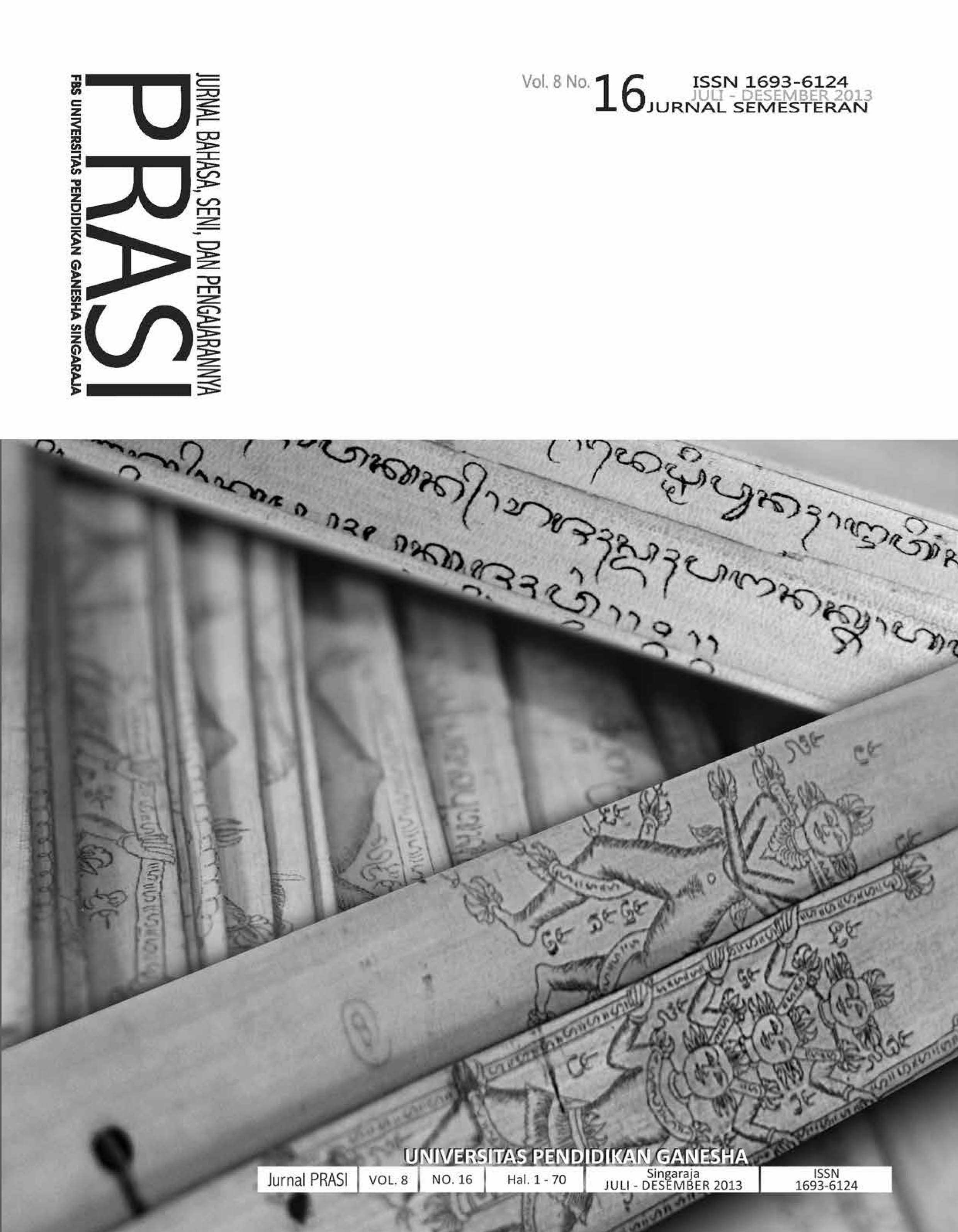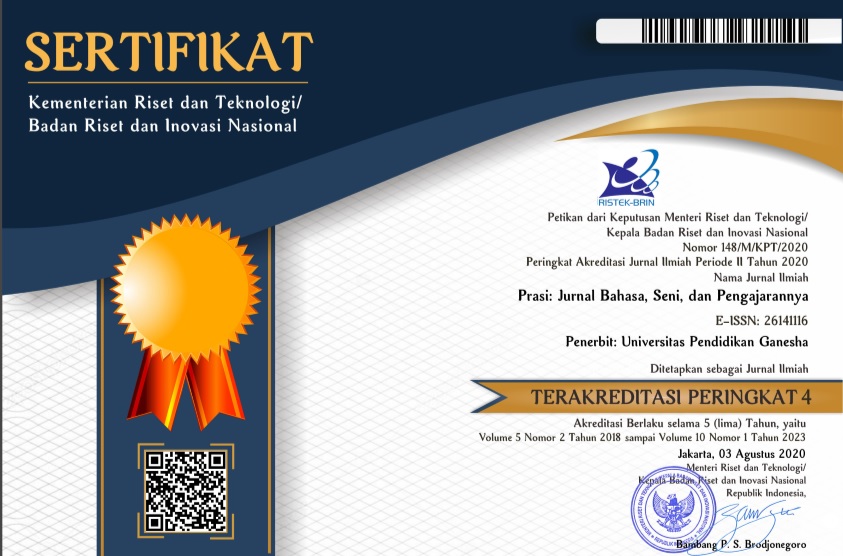KONTINUITAS KARYA SASTRA JEPANG SEBAGAI PENYEMANGAT HIDUP MASYARAKAT JEPANG
DOI:
https://doi.org/10.23887/prasi.v8i16.8998Abstract
A good literary work is certainly timeless. When tsunami struck Japan, two poems and a song were continuously broadcasted on the television. The poems: Ame ni mo Makezu and Kodamadeshouka and the song: Ue o Muite Arukō were written long before the disaster. These works were able to motivate the Japanese people to unite and bounce back in facing the disaster.
The author uses a liberal-humanist approach and literary sociology in analyzing the three factors. Based on the results, it is known that through liberal humanism the three literary works are indeed a good literary work since they have eternal significance. The repeated words are an emphasis that the Japanese people would not give up. While literary sociology reveals that when they were first written, these three works also served as a source of motivation to the people who were in the midsts of troubles. Since they were first written until today, especially when the tsunami struct, these three works continuously exist to motivate the Japanese people.
Keywords: continuity, liberal humanism, literary sociology, tsunami
Downloads
Published
Issue
Section
License
Authors who publish with Prasi agree to the following terms:- Authors retain copyright and grant the journal the right of first publication with the work simultaneously licensed under a Creative Commons Attribution License (CC BY-SA 4.0) that allows others to share the work with an acknowledgment of the work's authorship and initial publication in this journal
- Authors are able to enter into separate, additional contractual arrangements for the non-exclusive distribution of the journal's published version of the work (e.g., post it to an institutional repository or publish it in a book), with an acknowledgment of its initial publication in this journal.
- Authors are permitted and encouraged to post their work online (e.g., in institutional repositories or on their website) prior to and during the submission process, as it can lead to productive exchanges, as well as earlier and greater citation of published work. (See The Effect of Open Access)


.png)
.png)









